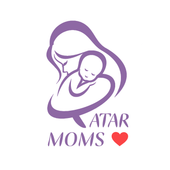Pregnancy is a unique and transformative journey—especially for first-time mothers. During this period, a woman’s body undergoes significant physical and hormonal changes that can impact her daily comfort and overall well-being. One of the most common, yet often overlooked, issues faced during pregnancy is constipation.
Hormonal fluctuations—particularly the rise in progesterone—can slow down digestive activity, leading to constipation. While it may seem like a minor inconvenience, constipation can affect your energy, mood, and quality of life if not addressed.
In this article, we’ll explain what constipation is, what causes it during pregnancy, its symptoms, and the most effective ways to manage or prevent it safely.
What Is Constipation During Pregnancy?
Constipation is typically defined as having fewer than three bowel movements per week. It’s often accompanied by:
- Hard, dry stools
- Pain or difficulty during defecation
- A sense of incomplete evacuation
- Bloating and abdominal discomfort
For pregnant women, constipation can feel especially uncomfortable and persistent due to the combination of hormonal changes and physical pressure from the growing uterus.
Common Symptoms of Constipation in Pregnancy
- Fewer than 3 bowel movements per week
- Straining or pain while defecating
- Abdominal bloating and gas
- Hard, dry stools
- In severe cases: hemorrhoids or anal fissures
What Causes Constipation During Pregnancy?
Several factors can contribute to constipation in pregnant women. Often, a combination of causes is at play:
1. Hormonal Changes
Increased levels of progesterone relax the smooth muscles in the body—including the intestinal muscles. This slows down the movement of food and waste, leading to constipation.
2. Prenatal Vitamins and Medications
Iron and calcium supplements, commonly prescribed during pregnancy, are known to cause constipation. Additionally, some medications used for nausea or heartburn may slow digestion.
Tip: Consult your doctor about switching brands or adjusting the dose if you notice symptoms.
3. Low-Fiber Diet & Inactivity
A diet low in fiber, combined with reduced physical activity, can significantly slow bowel movement. Increasing fiber intake, staying hydrated, and engaging in daily movement or light exercise can make a big difference.
4. Pressure from the Growing Uterus
As your baby grows, the uterus can put pressure on your intestines, reducing their mobility and efficiency.
Does Previous Constipation Increase the Risk?
Yes. If you experienced constipation before pregnancy, you're more likely to face similar or worse symptoms during pregnancy. That’s why adopting healthy digestive habits early on is key to prevention.
Effective Solutions for Pregnancy Constipation
- Don’t delay bowel movements – respond to the urge right away.
- Use a footstool when sitting on the toilet to elevate your feet. This improves posture and facilitates easier bowel movement.
- Drink at least 8 glasses of water daily – hot fluids can also stimulate digestion.
- Eat a high-fiber diet – include fruits, vegetables, legumes, and whole grains.
- Exercise regularly – walking or light prenatal yoga helps stimulate intestinal movement.
- Only use laxatives after consulting your doctor – never self-medicate during pregnancy.
Is Constipation During Pregnancy Dangerous?
In most cases, constipation during pregnancy is not harmful. However, ignoring it can lead to complications such as:
- Hemorrhoids
- Anal fissures
- Rectal prolapse (rare)
Will It Affect the Baby?
No. While constipation can be very uncomfortable for you, it does not harm your baby. Even occasional use of pregnancy-safe laxatives, when approved by your doctor, will not negatively impact your fetus.
Will Constipation Go Away After Birth?
It depends on several factors:
1. Delivery Method
After a C-section, constipation may last a few days due to anesthesia and limited mobility. In vaginal births, especially if an episiotomy was performed, fear of straining may delay bowel movements.
2. Postpartum Medications
Painkillers can slow digestion and increase the risk of constipation.
3. Breastfeeding
Nursing mothers are more likely to experience dehydration, increasing the risk of constipation. Stay well-hydrated.
4. Self-Care After Delivery
Many new moms prioritize their babies and forget about their own health. Make sure to maintain a balanced diet, hydrate well, and rest when possible.
Constipation affects around 2 in 5 pregnant women, but with the right habits—like staying active, eating fiber-rich foods, and drinking enough fluids—it can often be prevented or managed effectively. Always consult your healthcare provider before starting any new supplement or medication during pregnancy.
Explore our wonderful and distinctive collection of Pregnancy Care, Breat Care, Postpartum Care and other Moms Products at Qatar Moms Store Today!
 FREE DELIVERY FOR ORDERS ABOVE 100 QAR
FREE DELIVERY FOR ORDERS ABOVE 100 QAR DELIVERY WITHIN 3 HOURS
DELIVERY WITHIN 3 HOURS APPLE PAY AND CARD PAYMENT AVAILABLE
APPLE PAY AND CARD PAYMENT AVAILABLE



